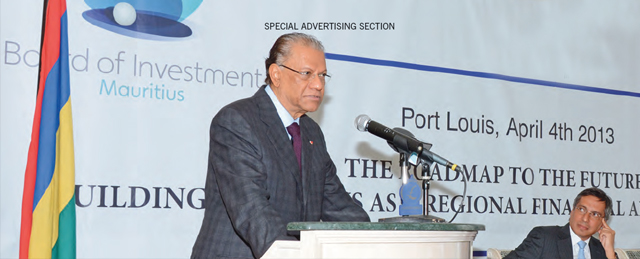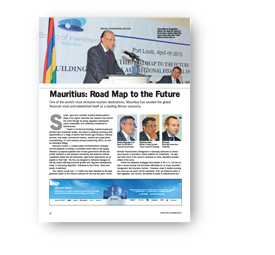One of the world’s most exclusive tourism destinations, Mauritius has resisted the global financial crisis and established itself as a leading African economy.
Secure, open and a pioneer of public-private partnerships
in the region, Mauritius has inspired trust around
the world through its strong regulatory frameworks,
sound competition and continuous investment in
infrastructure.
Thanks to its forward-thinking, market-focused government
and investment bodies, the island is positively brimming with
opportunities in a range of sectors that include agro-industry, fi nancial
services, real estate, commercial marinas, seafood and aquaculture,
manufacturing, ICT and business process outsourcing (BPO), as well
as renewable energy.
Business Outlook, a London-based communications company,
had the pleasure of hosting a roundtable forum there in the spring.
Attended by keynote speakers that include government offi cials and
prolifi c members of the business community, the Business Outlook
Leadership Series fora are interactive, open-forum discussions led by
experts in their field. The fora are designed to stimulate dialogue on
the key issues affecting economic growth and long-term development
today. In discussing Mauritius’ “Roadmap to the Future,” there was
plenty of optimism.
The country of just over 1.2 million has been heralded as the bestgoverned
nation on the African continent for the last fi ve years. Prime
Minister Navinchandra Ramgoolam is famously dedicated to democracy
because “it provides a stable platform for investment.” he says.
And with much of the world in recession or crisis, Mauritius remains
ahead of the curve.


